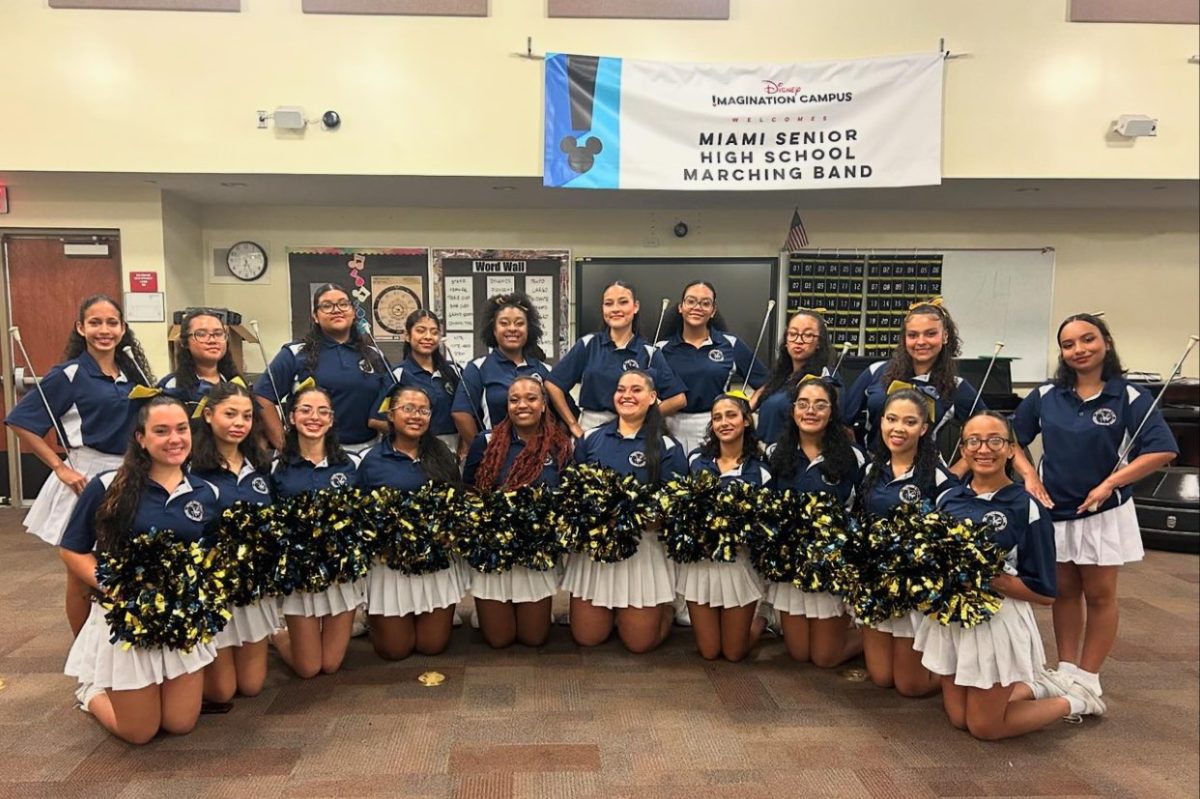What They Don’t Tell You: Honors vs Regular
February 6, 2019
Depending on how well you do in classes, teachers may place you in either an honors/AP or regular class the following year. Honors/AP classes are advanced courses made to challenge students, while regular classes are slower-paced classes to accommodate students who don’t perform as well. Some people believe that being in an honors or regular class can determine your high school experience; however, there are rumors going around that honors student are treated better by staff members.
Honors student senior Emmanuel Garit said, “I feel that there is a presumption that students in high-end classes are on the right track and do not need as much supervision as those in low-end classes.”
What’s the Difference?
Being in honors or regular usually means that there is a difference between how the students perform academically. Honors student senior Cynthia Garza said, “The difference is the determination and effort they put into classes. Honors kids put maximum effort in order to achieve the best grades and reach those honors classes, while regular kids tend to not care as much about getting lower grades, and just want to pass the class with an average grade.”
Regular student sophomore Jose Rodriguez agrees: “Honors students are more devoted to their education and are more focused on their future, which makes them honor students. Regular students still care about their grades, but at the same time, they don’t.”
Honors student freshman Rolando Morales said that it all depends on how much work they are willing to do and how hard they work. “Honors students are focused more and push harder. Anyone can be an honors student,” he said, “but some have to try more than others.”
Mr. Jara, who has taught both regular and honors classes in the past, said that the difference is attitude. “If they want to succeed, they can. Honors students have better attitude, are more disciplined, and work harder,” he said.
Unfair Treatment
Some students at Miami High noticed that regular students get targeted more by administrators at school. Honors student sophomore Sofia Melgar said, “Regular kids definitely get in trouble more than honors kids. That’s not to say that there aren’t honors kids that don’t get in trouble though. I’d say it’s because teachers tend to keep more of an eye out on regular kids because they’re expected to be rowdy or to be troublesome.”
Regular student Jose Rodriguez said, “Honors students are more devoted to their education. They don’t get in trouble because they are more focused on their grades.”
Regular student senior Christopher Valdes said, “Teachers and administrators expect regular students to act up. Honors students are set to higher standards.” Similarly, English teacher Ms. Bramer, who teaches both regular and honors classes, said, “I think there is an impression that regular students don’t care about school or get overlooked.”
There are also students that don’t believe there is unfair treatment. Honors student junior Alejandro Laurencio said, “I believe everyone is a hooligan.” Regular student sophomore Harlington Centeno said, “I think it’s equal. Just because you’re smart doesn’t mean you don’t decide to do something you know is wrong.”
However, some students beg to differ. Honors student Cynthia Garza said, “I don’t think honors students get better treatment. In fact, I think they get pressured more to act a certain way since teachers think of them as being more mature and on task rather than regular students.”
Honors student freshman Milargro Nacher agrees, saying, “The teachers treat us worse than regulars because they put so much pressure on us. We are always compared to regular students, saying that we should already know this because we’re honors.”
Placed on a Higher Pedestal
Nevertheless, many students at Miami High believe that the school puts honors students on a higher pedestal compared to regular students. Sophomore Isaac Colon, who has taken classes at both the regular and honors level, said, “They are acknowledged as hard workers and smart. Teachers see them as better students.”
Honors student senior Emmanuel Garit said, “I feel that there is a presumption that students in high-end classes are on the right track and do not need as much supervision as those in low-end classes. Also, I feel as if their reputation is what distinguishes them for certain opportunities and creates leniency in teachers and the administration. Honors student are a name rather than a number, to put it bluntly.”
Honors student freshman Alejandro Valdes added, “We do get certain advantages over regular students. We usually get to participate in more fun activities.” He also believes that honors students receive more respect and are looked up to as superior.
Why are Students in Regular or Honors Classes?
Students in honors or regular classes are there for a reason. 10th grade counselor Ms. Gottlieb said, “The school looks at academic performance and determines the best placement for each individual student. This school does a really good job at identifying students who will be successful in the honors program, so if you have not been placed in the beginning, chances are that you’ll not be placed later.”
Honors student Emmanuel Garit said, “Our education system uses test scores and GPA’s to determine where a student should be. In other words, numbers and cutoffs determine whether a student is placed in regular or honors, not their passion and work ethic.”
Honors student Sofia Melgar believes it varies among students. She said, “Some may have strengths outside of the core subjects, while others may have gone to middle schools that didn’t really encourage them or push them. There’s not exactly one universal reason for being in regular classes.”
Ms. Bramer said that regular is the default course. “Students are placed in honors classes if they’re bored in regular,” she said, “or if the regular is too slow for them.”
Mr. Jara said, “Regular students haven’t matured enough to realize hard work pays off. Honors students have learned to work at a particular standard which happens to be higher than others.”

Regular student sophomore Harlington Centeno said, “I think [ the treatment between honors and regular students] is equal. Just because you’re smart doesn’t mean you don’t decide to do something you know is wrong.”
Does it Affect their Self-Esteem?
Being in regular classes may affect a student’s self-worth. Honors student freshman Karina Garcia said, “We treat regular students like they are less than or stupid, and it makes them feel that way, which is a terrible thing that we are doing. I know this for a fact because my cousin is in regular, and he always compares himself to me because he feels like he’s not as accomplished as me, and he feels he never will be because that’s how our school systems treats the regular students.”
However, some students say it doesn’t affect their self-esteem. Regular student Jose Rodriguez said, “Honors students are being pushed more and always think, ‘What do I have to do to improve my grade?’ Since regulars don’t get pushed as much, they get to relax more, which is why they may prefer regular.”
Honors sophomore Victoria Mendez said, “I don’t think being in a regular class is something a student should be ashamed of. Myself being an honors student, I can admit I think I should be in a regular math class sometimes. Every student is better at different things. Being in a regular class does not mean that one person is less than another, just that they move at a different pace.”






